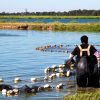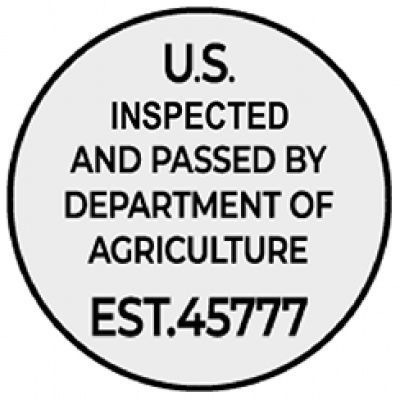The U.S. Department of Agriculture’s (USDA) National Institute of Food and Agriculture (NIFA) recently announced grants to support the development of environmentally and economically sustainable aquaculture in the U.S. These awards were made through the Aquaculture Research Program authorized by the Competitive Special and Facilities Research Grants Act, administered by NIFA.
“By 2030, it’s estimated that nearly two-thirds of fish consumed globally will be produced through aquaculture,” said NIFA Director, Sonny Ramaswamy. “It is important to foster a sustainable aquaculture industry in the United States to support nutritional security and job creation in rural America.”
Aquaculture involves the breeding, rearing, and harvesting of freshwater and marine species of fish, shellfish, and aquatic plants. NIFA Aquaculture Research Program grants support the development of a globally competitive and profitable U.S. aquaculture industry through investments that help improve domestic aquaculture production efficiency, sustainability, safety, marketing, information sharing, and access to global science-based information and advanced technologies.
Through four FY17 aquaculture grants as awarded by NIFA, two universities will address critical issues impacting aquaculture species. Among the newly awarded projects, Auburn University will develop a cost-effective vaccine for the U.S. catfish industry to fight columnaris disease, which kills catfish and other cultured and ornamental freshwater fish worldwide. Another project at the University of Maryland Baltimore County will develop an oral vaccine to help combat infectious hematopoietic necrosis virus (IHNV), a disease that affects trout and salmon.
To read the full story, please visit https://www.eurekalert.org/pub_releases/2017-11/niof-uii110317.php.





